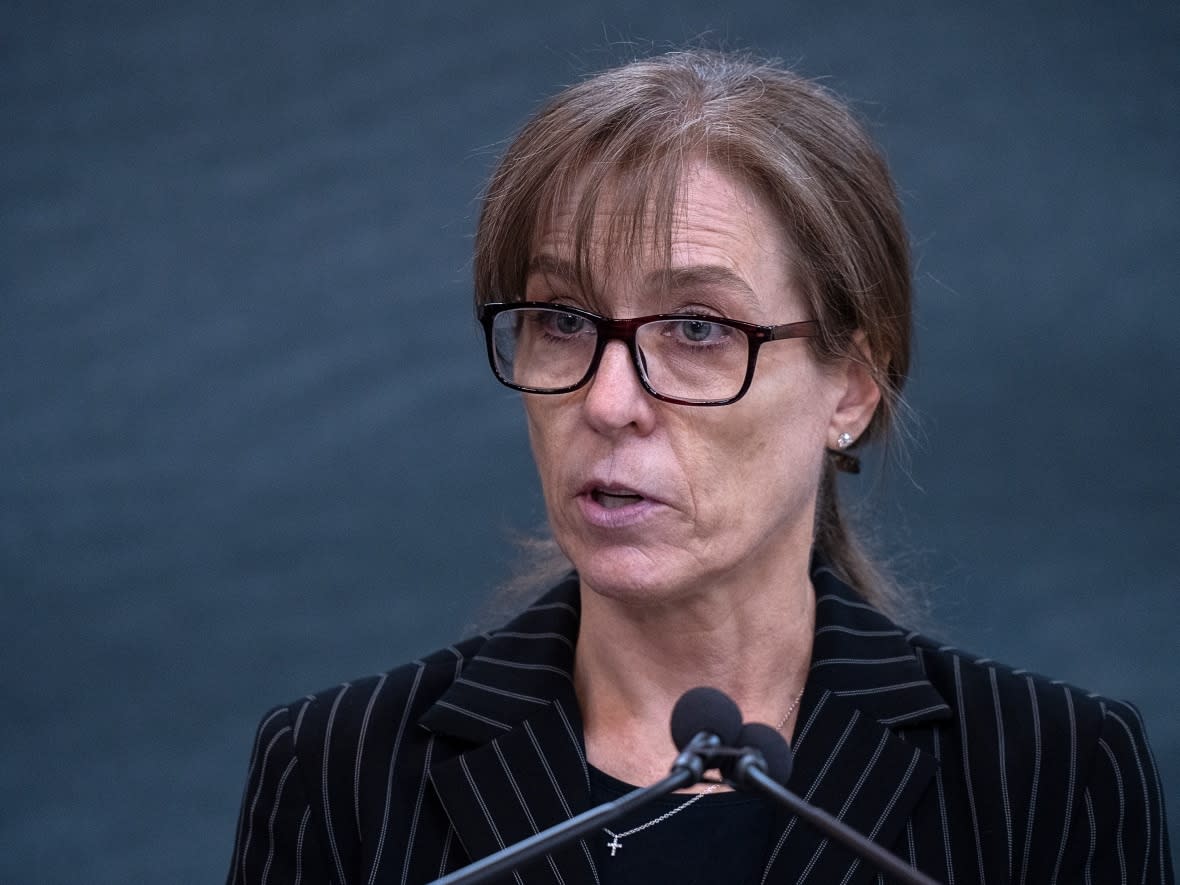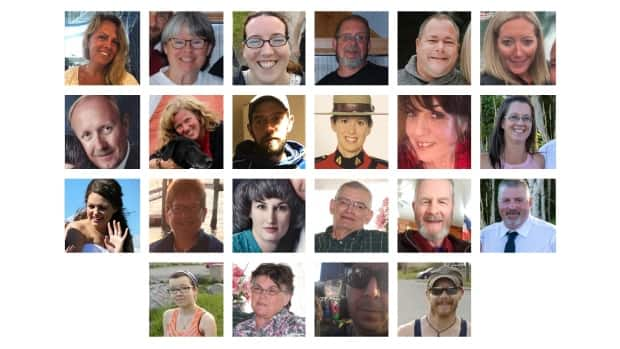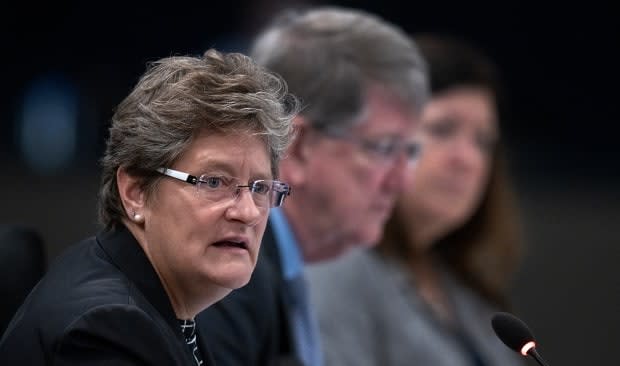On final day of inquiry, RCMP lawyer says N.S. mass shooting response 'far from perfect'

A lawyer for the RCMP and the federal government became emotional on the final day of a public inquiry into the Nova Scotia mass shooting as she acknowledged the police response to the massacre was "far from perfect."
Lori Ward, counsel for the attorney general of Canada, gave a final oral submission Friday before the Mass Casualty Commission in Truro, N.S., which has been hearing from lawyers and participants this week.
The commission is leading the inquiry into the rampage in rural Nova Scotia where gunman Gabriel Wortman burned homes and killed neighbours, acquaintances and strangers on April 18-19, 2020, while driving a mock police cruiser. Twenty-two people, including a pregnant woman, were killed.
"In the face of such tragedy, the urge to lay blame is strong and the person who bears ultimate responsibility is not here," Ward said.
"He is taken out of the narrative, and the focus becomes what others did or didn't do to stop him. Those who are left behind and who could not prevent the violence are the focus of anger."
Ward said while some things during and after the shootings went according to police plans and training, others "did not work as they should have."
She cited two examples that were brought up repeatedly during the inquiry by lawyers for victims' families.
Ward said it's "obvious" the roughly 19 hours it took to find the Bond and Tuck-Oliver families on Cobequid Court in Portapique — where the violence began — was far too long.
"The anguish felt by the families of those victims at the thought at that lapse of time is unimaginable, and we acknowledge that suffering," Ward said, her voice breaking.
Similarly, she said scene security at victim Gina Goulet's home was mishandled and "should not have happened."
Goulet's daughter and son-in-law have said no one told them when they could re-enter the house, and when they eventually did, they discovered blood and a shell casing. They arranged to have the home cleaned on their own.

Ward also said the issues that officers had in the RCMP Bible Hill detachment using the force's Pictometry mapping program, which is based on satellite imagery, show it has to be easier to access. Better GPS technology would have allowed more immediate-response teams to go into Portapique, she said.
It's also clear that radio communications were an issue, Ward said, given that critical pieces of information weren't heard or re-broadcast to ensure the right people acknowledged them, like how two Portapique shooting victims survived.
There were also timeliness and accuracy issues with the social media posts sent out by the RCMP, Ward said. The first tweet on April 18 called the incident a firearms complaint, which didn't explain the gravity of the situation. The next day, there was a delay in sending out information about the gunman's mock cruiser.
"These are just some examples of things the RCMP wishes it could go back in time and change. Some relate to training, equipment and resources, some are simply human error. All of them are regrettable," Ward said.
Many victims' families and others impacted by the mass shooting attended the final week of the inquiry to hear final submissions, as they have throughout the commission.
Volunteer firefighter Darrell Currie said the end of public hearings Friday was an "exhale type of day" for him and many of the families who often gathered around the same tables in hotels and convention centres around Halifax, Dartmouth and Truro to watch the inquiry since February.
Currie and Greg Muise, the deputy chief and fire chief of the Onslow Belmont Fire Brigade, were both inside their fire hall on April 19, 2020, when two RCMP officers opened fire at the building in their mistaken belief they were shooting at the gunman.

"You know the reason is not good that we're all here together, but there's certainly a good group of friends, and I mean that's going to be hard to walk away from," Currie said Thursday outside the inquiry.
"But I think it'll be a relief that this phase is over."
Currie said it was important for him to come in person for roughly 70 days of the proceedings to hear what was being said and support the victims' families. While it seemed "somewhat therapeutic" initially for himself as well, Currie said the long days and piles of documents have become overwhelming.
Although some family members have said they are left with questions and concerns, Currie said he has learned a lot throughout the inquiry and had the satisfaction of speaking his mind when he testified alongside Muise.
"I was allowed to say whatever I wanted to say where a lot of the families haven't been given that opportunity," Currie said.
Commissioners Michael MacDonald, Kim Stanton and Leanne Fitch also delivered their final remarks Friday, summing up the testimony, documents and panels that were held to address their broad mandate.

They have been tasked to not only look into the mass shooting itself, but underlying factors like domestic violence, firearms access, police structures, and emergency communications.
"After today, the commission's public proceedings are over. But our work is far from done. While you may not hear from us as often, or see us in our daily proceedings, in the weeks and months ahead we will be exclusively focused on preparing and completing the commission's final report," Fitch said.
"We commissioners have been entrusted with a great responsibility and we will continue to do our utmost to live up to that."
The report will be shared publicly by March 31, 2023, and include guidance about who should carry out each recommendation, and when, Fitch said.
MORE TOP STORIES


